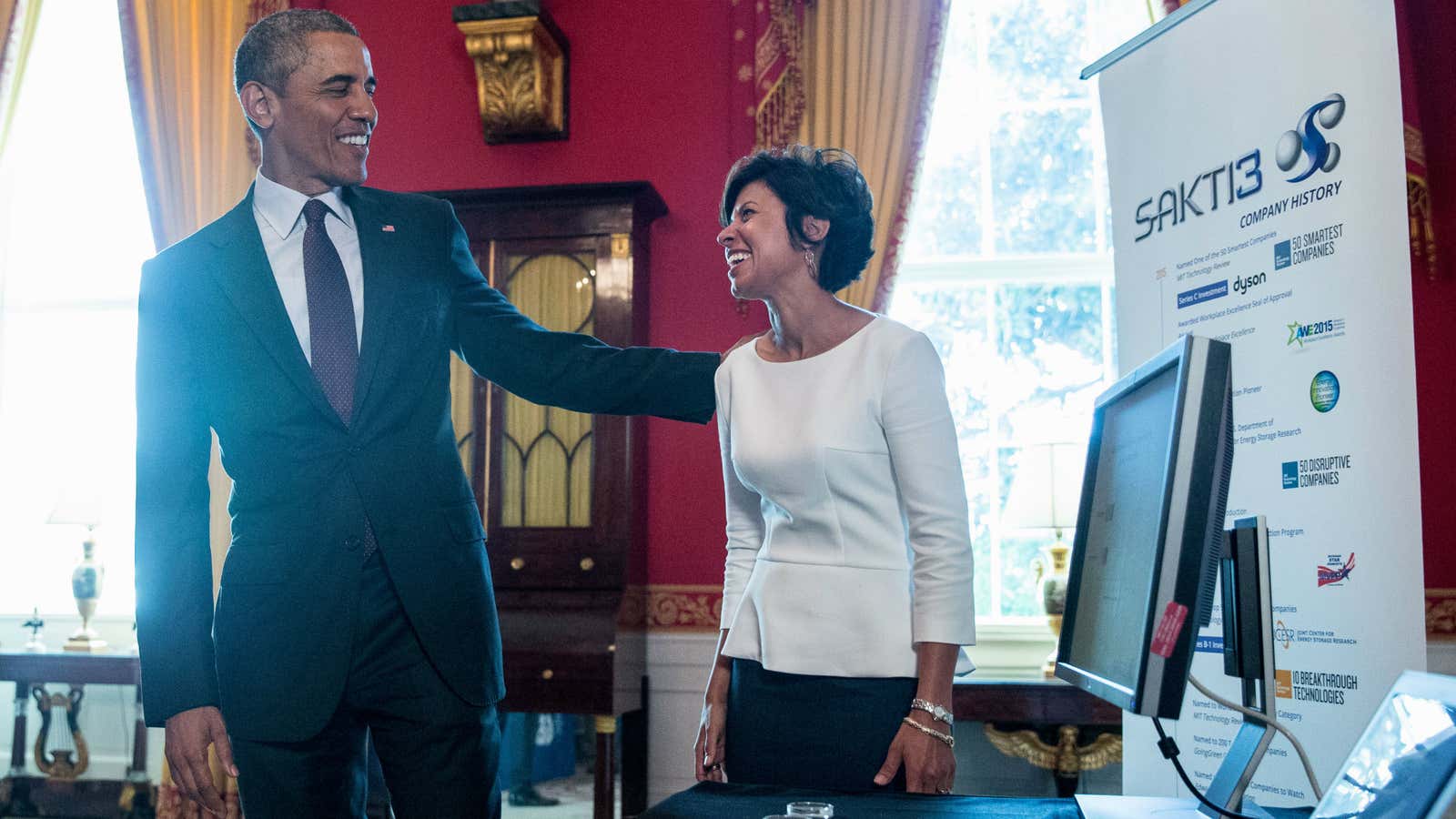Dyson, the UK-based home appliance manufacturer, has agreed to acquire Sakti3, a seven-year-old Michigan startup working on an experimental solid-state approach to advanced batteries.
Dyson will pay $90 million cash for the company, according to a merger document seen by Quartz, which specifies the deal will close today after being approved by both company boards on Sept. 25. Neither Dyson nor Sakti3 responded to requests for comment. General Motors and Silicon Valley venture capitalist Vinod Khosla are also investors in Sakti3; GM declined to comment, and Khosla did not respond to several requests for comment.
The acquisition marks Dyson as a potentially serious player in the race to create an advanced energy storage device. And the deal comes just seven weeks after Bosch bought Seeo, another solid-state battery startup, in a significant validation of the new technology.
Many experts say solid-state batteries—which eliminates liquid electrolyte, the lithium-ion substance that can cause fires, and replaces it with a solid, such as a polymer—are the leading candidate to succeed current lithium-ion batteries. Perfecting the technology could be a huge boost to the nascent electric car industry. But the method must overcome serious challenges before it is ready for the market, in particular how to produce solid-state batteries at a competitive price.
The first indication of a tie-up between Dyson and Sakti3 came last March, when James Dyson, the UK billionaire entrepreneur who founded Dyson, invested $15 million in the start-up (paywall). He said at the time that he planned to install the batteries in a host of new electrified gadgets.
In August, Sakti3 CEO Ann Marie Sastry attracted attention when she introduced her technology (video) to US president Barack Obama at “White House Demo Day” (pictured above). Since starting Sakti3, Sastry has been ultra-secretive about her work, but also skilled at maintaining a flow of funding while numerous rivals went bankrupt.
